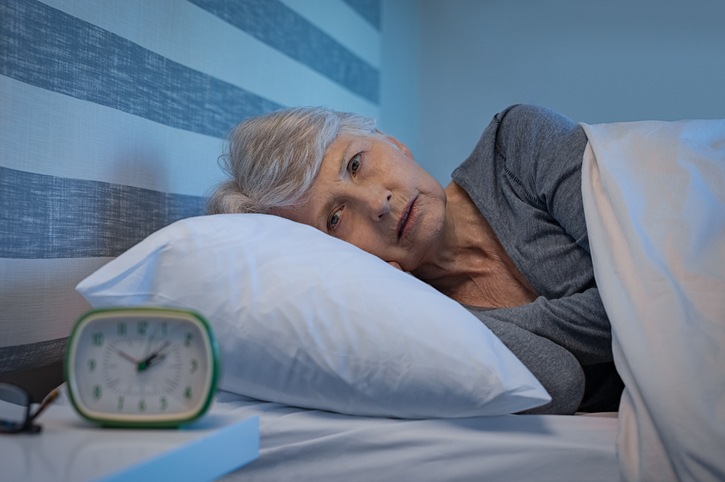
A study recently published in the journal Cancer has found that stepped care delivery models can improve accessibility and allow for adjustments in treatment intensity in cancer survivors with insomnia.
In their work, researchers analyzed 51 cancer survivors with an average age of 55 years and an elevated Insomnia Index Score (ISI) of at least 12. This score is comprised of seven questions, with lower scores being correlated to less likelihood of insomnia and scores of 22-28 indicated severe insomnia.
These patients then went through a stepped care approach, beginning with Sleep Training Education Program 1 (STEP-1). This entry-level consists of a one-hour sleep education session. STEP-1 was created by a psychologist and consists of psychological education regarding insomnia occurring in cancer survivors. Introduction to sleep hygiene, identification of two to three of the most important sleep hygiene aspects for each patient, and the creation of a plan for behavioral change that will be applied over a month occur in this phase as well.
The researchers found that after one month of STEP-1, the average patient’s ISI scores had decreased from 17.1 at baseline to 11.2 (P <.001). 45% of the patients responded well to the stepped care delivery, with 41% displaying clinical remission of insomnia. The team deemed patients to be in remission if they had an ISI score of under 12, and an improvement of 6 points or more was defined as treatment response. Insomnia remission in STEP-1 was associated with decreased severity of insomnia and shorter duration of disordered sleeping at baseline as well.
Of the 51 survivors, 30 (59%) with persistent insomnia after one month of STEP-1 progressed to the more intense STEP-2. This phase consisted of three sessions of group-based intervention centered on cognitive behavioral therapy. The average ISI in patients who underwent STEP-2 dropped from 16.9 before therapy to 8.8 afterward (P <.001). 79% of these patients responded well to the STEP-2 treatment, with 71% of them experiencing remission from insomnia.
“Our efforts here seek to balance the desire for every patient with insomnia to receive the full course of the gold standard treatment, with the reality of survivorship care at most cancer centers which are appropriately focused primarily on delivering cancer treatment,” the authors concluded.
RT @SleepKnow: Chronic insomnia can be cured in cancer survivors with a basic sleep education class- Here’s the Theory: https://t.co/Y2SALXZwqw // Very interesting
— ThirdPillarofHealth (@3rdPillarHealth) October 5, 2019







 © 2025 Mashup Media, LLC, a Formedics Property. All Rights Reserved.
© 2025 Mashup Media, LLC, a Formedics Property. All Rights Reserved.